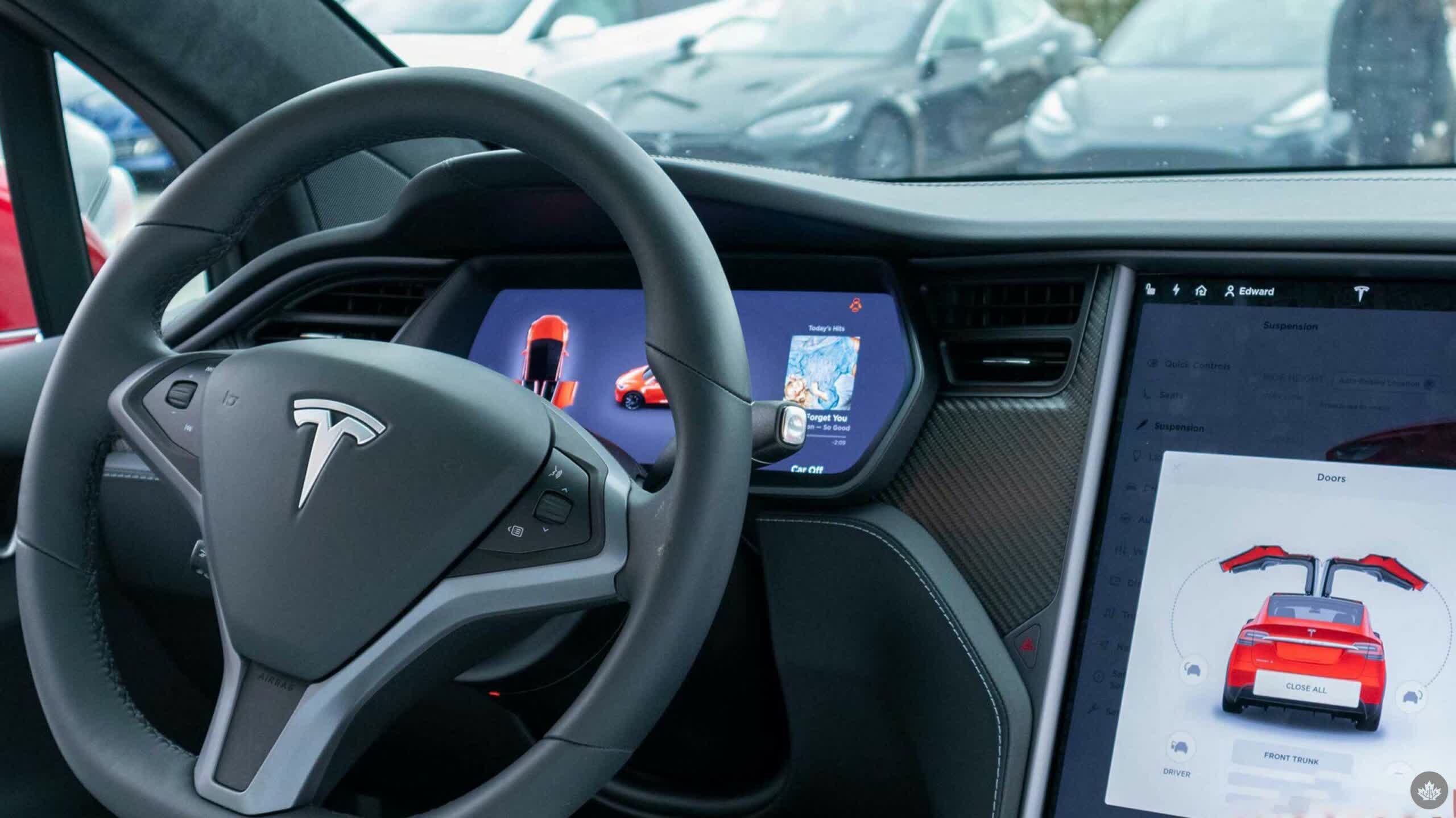In brief: Tesla could pay damages of $345 million in a personal injury trial over a fatal Autopilot crash that happened in 2019. Lawyers for the plaintiffs claim that Elon Musk and Tesla made false statements to customers, shareholders, and the public about the safety capabilities of Autopilot, thereby increasing drivers' reliance on the system.
On April 25, 2019, 42-year-old George McGee was driving a Tesla Model S south on County Road 905 toward Card Sound Road in Key Largo, Florida, with Autopilot engaged. Distracted after dropping his phone, the car drove through a flashing-red light and stop sign at the T-intersection at roughly 60 – 70 mph, never braking. McGee later said that he believed Enhanced Autopilot would brake if an obstacle was in the way.
The Tesla slammed into an empty Chevrolet Tahoe that was pulled onto the shoulder so its occupants, 22-year-old Naibel Benavides Leon and her boyfriend Dillon Angulo, could stargaze. The impact spun the SUV, killing Benavides instantly and causing catastrophic injuries to Angulo.
CNBC reports that Angulo is asking the court for compensation for his medical expenses and pain and suffering, while Benavides' estate is suing for wrongful death, pain and suffering, and punitive damages.
On Thursday, plaintiffs asked the jury to award damages of around $345 million, including $109 million in compensatory damages and $236 million in punitive damages.
The plaintiff's lawyers claim Autopilot was defectively designed, lacked geofencing that would have ensured the mode was limited to safer roads, and was marketed in a way that encouraged over-reliance. Tesla's defense team says the driver's behavior was to blame for the incident.
McGee was charged in October 2019 with careless driving and didn't contest the charges. The Benavides family had previously sued McGee and settled with him.
Tesla drives itself (no human input at all) thru urban streets to highway to streets, then finds a parking spot https://t.co/V2T7KGMPBo
– Elon Musk (@elonmusk) October 20, 2016
Musk and Tesla have been making questionable Autopilot promises that were cited in court cases for years. There was the famous demo from 2016 that showed a Model X stopping at junctions and obeying traffic lights. It was later revealed that the demo was staged: it was pre-mapped, obstacles were removed and – off-camera – the car hit a fence. The video was cited in a wrongful-death suit in 2023.
Musk has also long promised level-5 autonomy in Teslas, that drivers could go to sleep and the car would drive themselves (by 2020), New York-to-L.A. autonomous driving with no driver interaction required, and more.
In 2024, a report from the National Highway Traffic Safety Administration (NHTSA) linked Tesla's Autopilot systems to nearly 1,000 crashes from the last few years, over two dozen of them fatal.
Tesla usually settles Autopilot suits or moves them to arbitration, but the judge said in early July that this case could move ahead to trial.
"A reasonable jury could find that Tesla acted in reckless disregard of human life for the sake of developing their product and maximizing profit," she wrote in the order.
